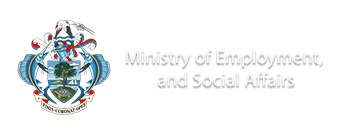More S5 school leavers expected to join professional centres
S5 school leavers have been urged to perform well even though professional centres and School of Advanced Level Studies (Sals) move to absorb more students next year.
The Ministry of Education and Human Resource Development made note of this yesterday during a press conference to explain its newly approved proposal to increase the intake of S5 school leavers in these institutions.
The objective of the new proposal is to ensure that the majority of the 1145 upcoming S5 school leavers are able to pursue further education and reduce the number of leavers entering an already struggling labour market.
An initiative devised following the first meeting chaired by President Danny Faure on the financial and economic outlook of the country, the proposal also addresses the large number of students who do not access post-secondary institutions.
Around 370 out of more than 1000 S5 school leavers from the 2019 cohort did not make it into professional centres and Sals.
Before Covid-19, unemployment rate in 2019 was as low as 2.7% and youth unemployment stood at 9.4% hence despite students not being accepted in post-secondary institutions it was easier for them to secure employment.
Now with the effects of the novel coronavirus, unemployment rate has surged to 2.8% while youth unemployment stands at a striking 20.4%, and therefore it will be more difficult for an individual with only an S5 certificate to gain employment.
Principal secretary for tertiary education, Dr Linda Barallon, noted that these challenges have compelled the ministry to absorb more S5 leavers in post-secondary institutions through conditional acceptance and short courses. In turn, this will reduce pressure on the employment department’s job placement programmes.
A total of 1145 students are expected to complete S5 by the end of 2020.
PS Barallon however stressed that this increased flexibility in entry criteria does not mean a compromise on quality of education.
“For next year, post-secondary institutions will be more flexible in view of the situation of Covid-19. Students who are willing but who do not meet their criteria straight-up, the post-secondary institutions will take them on a conditional offer,” explained PS Barallon.
“Another point of consideration which the cabinet approved is to establish a high-level committee between the ministry of education and employment department that will be in place when the selection process is over. The committee will analyse which students have been put in placement, who are appealing or who have nowhere to go and take care of them.”
Meanwhile 31 short courses in the various institutions will be on offer for students who are not up to spending over a year or more in post-secondary.
According to the principal secretary for employment, Jules Baker, these short courses will provide some students with some skills and certification that will allow them to compete against other job seekers.
“Every year, S5 school leavers are competing against post-secondary leavers, university graduates and other individuals who have gained certification either through Sidol or other means,” said Mr Baker.
“Employers are also wary of employing youths who only graduated secondary school since they argue that they have neither qualifications nor experience. This is why we need to increase their academic baggage through full-time education at post-secondary level and those who cannot go on full-time basis can join the short courses to gain practical skills.”
Although they will not be fully-fledged skilled workers, the students who undertake these short courses will at least have a foundation to work on that will ensure that they are not only employed but receive decent wages.
Selby Dora, consultant for regulatory affairs and governance at the ministry of education, noted that there will be 65 post-seondary programmes in place in 2021, six more than offered this year.
He also stressed that there are more places open for students in post-secondary, around 1400, than there are students leaving S5 which highlights the fact that every student can gain access to further studies.
Even though post-secondary institutions will be more lenient on their criteria, Mr Dora stated that this should not be used an as an excuse for S5 students to not perform well in schools and in their exams.
“It is important for parents and students to understand that they still need to perform, and not relax thinking that ‘I will get in a post-secondary institution whether I do well or not’,” advised Mr Dora.
Elsie Pointe



